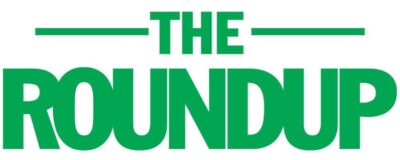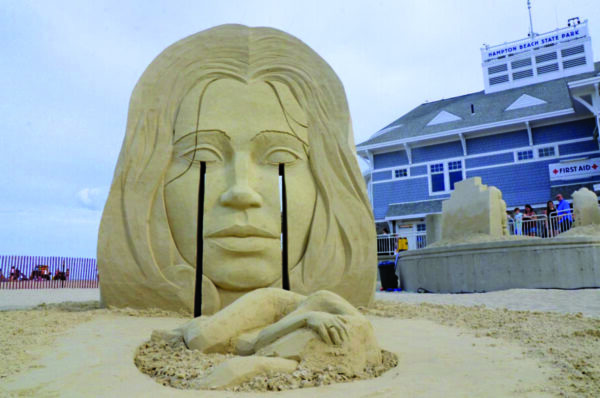Jokes from local comedians — and where to see them perform
What’s a good joke?
There are puns like “when chemists die, they barium,” and absurdities along the lines of “I’m reading a book about anti-gravity, and I can’t put it down.” Comedian Amy Tee has an opening line to disarm crowds wondering about her androgynous appearance: “You’re probably wondering what bathroom I’m going to use,” she says. “It’ll be the one with the shortest line, I guarantee you that.”
We asked a gaggle (or is that a giggle?) of regional comics for their favorite jokes. The responses ranged from personal favorites used in their sets to “street jokes” that float in the comedic ether. Some quoted influences like the late Mitch Hedberg, George Carlin or Rodney Dangerfield.
Here’s what happens when you ask someone who makes people laugh professionally for three favorite jokes.
Francis Birch
The family-minded comic offers this from his act:
I coach my son’s little-league baseball team. One of his teammates said to him, ‘My dad can kick your dad’s butt.’ My son said, ‘Well, my dad’s name is Francis, so you’re probably right.’
His all-time favorite joke is one his beloved mother used to tell him:
Rosa and Salvi were an old married couple who had three kids. Salvi was concerned because the youngest of the three did not look like the other two. When he was born, Salvi said, ‘Rosa, this boy is different than the other two; he must not be mine. Tell me the truth. I won’t be mad.’ Rosa said, ‘That baby is yours, Salvi. You’re paranoid.’ As the boy grew he looked different. ‘Rosa, just tell me the truth. I love this boy. But I know he’s not mine.’ Rosa said, ‘Salvi, that boy is yours.’ When he grew into a teenager, Salvi just knew that the boy was different. He said, ‘Rosa. I’m leaving. All these years you have lied to me. I can’t take it anymore.’ Rosa said ‘Salvi, that boy is yours. I swear it. The other two are your brother’s.’
The Granite State native appears June 17 at the Laconia Opera House.
Jimmy Dunn
Dunn said his favorite newspaper-friendly joke is from Don Gavin, The Godfather of Boston Comedy:
I was in a casino and saw a sign that said, ‘If you have a gambling problem, call 1-800-GAMBLER.’ So I called and said, ‘Yes, I have a gambling problem. I have an ace and a six and the dealer is showing a seven.’”
(He said his favorite is a Willie Nelson joke whose punchline is, ‘I’m not Willie Nelson.’)
To hear the rest of this NSFW bit, check him out at Kooks Café and Beach Bar in Rye on June 17, Cellos in Candia on June 19, The Grog in Newburyport, Mass., on June 23 and The Rex in Manchester on July 23. Check Dunn’s website for news about his hometown comedy festival, which usually happens in August (jimmydunn.com).
Carolyn Riley
Voted Boston’s Funniest a couple of years back, the rising star comic lives in New York City but returns home for shows every now and then. Here are a couple of her own favorites:
I got a girl so mad at me once she said, ‘OK, New Hampshire’ like it was a slur. I was like, ‘B*tch, don’t make me kayak through this babbling brook and smack you with my paddle!’
I showed up on a date with a guy and noticed he was wearing a ring. I said, ‘Is that a wedding ring?’ He said, ‘No, no, this is my Harvard class ring.’ I said, ‘Oh wow, that is worse.’
Riley also likes this gem from Taylor Tomlinson:
I’ll have you know that in bed I am a wild animal — yeah, way more afraid of you than you are of me.
And from Matt Donaher, a Hudson native now working in Los Angeles whom Riley cites as ‘the first comic that made me want to do stand-up when I saw him in high school,’ there’s this one:
I got run over by a stretch limo … took forever.
Riley opens for Corey Rodrigues at Laugh Boston on June 18 and June 19, and appears at The Grog in Newburyport, Mass., on June 23 with Jimmy Dunn and Dave Rattigan. She’s also at Kooks in Rye Beach with Jimmy Dunn and Friends on June 24.
Dave Rattigan
Known as The Professor by many comics who’ve taken his public speaking class at Northern Essex Community College in Haverhill, Mass., Rattigan naturally cites favorite jokes by other comedians, along with iconic writer Dorothy Parker, who said, “beauty is only skin deep, but ugly goes clean to the bone.”
Rattigan likes this one from novelist and Conan writer Brian Kiley:
There’s always one teacher you had a crush on; for me, it’s my wife’s aerobics instructor.
And here’s a George Carlin favorite:
Think of how stupid the average person is and realize half of them are stupider than that.
He cites this gem from fellow New England comic Paul Gilligan:
Plumbers are expensive. You come home and see a plumber’s van in front of your house and think, ‘I hope he’s [having an affair] with my wife.’
Rattigan is a regular at The Winner’s Circle in Salisbury, Mass., during Tuesday open mic night, frequently hosting. He’ll be at Steve’s Pinehurst in Billerica on Saturday, June 19, and The Grog in Newburyport on Wednesday, June 23, with Jimmy Dunn and Carolyn Riley.
Carolyn Plummer
One of her own:
My Dad was a minister, so we always had to set an example for the other kids at Sunday school. That’s a lot of pressure when you’re 6, and they should have been more specific.
One of her Mitch Hedberg favorites:
An escalator can never break, it can only become stairs. You should never see an ‘Escalator Temporarily Out Of Order’ sign, just ‘Escalator Temporarily Stairs, sorry for the convenience.’
From Kathleen Madigan, she loves this one:
I bowled for two years in college, because I was drunk and needed shoes.
Plummer performs at The Boat in Dracut, Mass., on June 25, at McCue’s Comedy Club at the Roundabout Diner in Portsmouth on July 9, and at Great Waters in Wolfeboro with Juston McKinney on Aug. 6.
Jay Chanoine
Chanoine likes this one from George Carlin:
I went to a bookstore and asked the saleswoman, ‘Where’s the self-help section?’ She said if she told me, it would defeat the purpose.
And Chanoine says this one makes him laugh every time:
What do we want? Low-flying plane sounds! When do we want them? Nnnneeeeoooooowwwwwww!”
He calls this one the best dad joke he’s ever heard:
My best friend is a dad, and he built a patio behind his house. He got really into decorating it, like dads do. He sent pictures out to show it off when he was done and one of his buddies asked, ‘What’s that on the crushed stones?’ Kevin replied, ‘A whiskey barrel.’ His buddy was impressed, and said, ‘Oh, neat!’ And my friend goes, ‘Nope — it’s on the rocks.’
Upcoming shows include Chunky’s Pelham on June 26, and Chunky’s Nashua on July 3.
Matt Barry
Barry said he usually opens his sets with this one:
I did a show at a VFW recently. Half the crowd was dudes who looked just like my dad, and the other half of the crowd was women who looked just like my dad.
Barry said, “I draw a ton of inspiration from the late great Mitch Hedberg, which is obvious when you see my act,” and points to these two favorite Hedberg one-liners:
I don’t have a girlfriend, but I do know a woman who would be mad that I said that, and is a hippopotamus a hippopotamus, or just a really cool oppotamus?
But Barry said his “absolute favorite joke of all time” is one called The Dufrenes from Hedberg:
When you’re waiting for a table at a restaurant, the host will call out ‘Dufrene, party of two. Dufrene, party of two….’ And if nobody answers, they just move on to the next one: ‘Bush, party of three….” But like, what happened to the Dufrenes? Nobody seems to care. Who can eat at a time like this? People are missing! The Dufrenes are in somebody’s trunk with duct tape over their mouths. And they’re hungry!
Matt’s upcoming shows include Pine Acres RV Resort in Raymond on July 2, Chunky’s Nashua on July 3, July 9 and July 10, The Word Barn in Exeter on July 30, Chunky’s Manchester on Aug. 6 and Aug. 7, Chunky’s Pelham on Aug. 21 and Chunky’s Nashua on Aug. 28.
Jim Colliton
The Bedford, Mass., native talks a lot about marriage and family in his act:
My wife wanted a new bike. The man at the bike store said, ‘How many miles do you ride a week?’ I said, ‘We have been married 24 years, and we’ve gone on three bike rides. Do you have a bike we can borrow?’
I hate shopping because I’m a dad, and dads always buy the wrong thing. Last week I bought 25 rolls of paper towels because the list only said paper towels. My wife said, ‘Are those the paper towels you bought?’ I said, ‘No, I would never buy these. … I bought them to show you what other men would bring home to their families.’ She said, ‘You’ve lived in this house 20 years and don’t know what kind of paper towels we use?’ I said, ‘I don’t even know where we keep the paper towels. If they’re not by the sink, I use my T-shirt.’
Colliton, a frequent Headliners headliner, will be at Fulchino Vineyards in Hollis on July 9. Further afield, he’s appearing June 25 and June 26 at Giggles in Saugus, Mass.
Christine Hurley
Here’s Hurley on parenthood:
Being a mother of five can be overwhelming. This is why you should not have your Slimfast with vodka smoothie while trying to get them off to school; things can go bad pretty quickly. Case in point: a few weeks ago my middle daughter, Ryan, woke up not feeling well. I said, ‘Go back to bed, Ryan, I’ll call the school nurse and let her know you aren’t coming in.’ So I call and leave a message, ‘Ryan won’t be in today.’ Ten minutes later my phone rings. ‘Mrs. Hurley, I’m sorry to hear Ryan doesn’t feel well — but she doesn’t go here.’ I said, ‘Really? Do you know where she does go?’
Hurley headlines The Rex on July 16, with shows later this summer at Suissevale in Moultonborough on July 31, LaBelle Winery in Derry on Aug. 12 and The Word Barn in Exeter on Aug. 13.
Will Noonan
Noonan’s favorite joke of his own is about chicken being underpriced for a living thing:
I’m far from a vegetarian, but 25 cents a chicken wing is just insulting to the animal.
(“It’s my favorite because I came up with the premise in my second year of comedy and the joke never made it into my act until my 13th year,” Noonan said.)
His favorite types of jokes, he said, are the ones you think of every time you do something. “Corey Rodrigues has one I think of every time I brush my teeth. I think of Dave Attel every time I’m on an airplane, or as he calls it, ‘a fly fly.’”
Noonan, named Boston’s Best Comedianby The Improper Bostonianmagazine, appears frequently at Headliners — he’ll be at the Hampton location on Aug. 14 — and has weekly shows at Capo in South Boston. He’s expected to take part in Jimmy Dunn’s annual Hampton Beach Comedy Festival later this summer, which will be announced when a venue is nailed down.
Juston McKinney
Here’s McKinney on some Patriots players:
I did a Showtime comedy special with Rob Gronkowski, who did 10 minutes of stand-up and then introduced me. My opening joke was, ‘How great is Rob Gronkowski? My kids love Gronk. In fact, my 7-year-old for Halloween went trick-or-treating as Gronk. He got to the third house, hurt himself, and was done for the year.’ I thought Gronk, hearing this, he was gonna deck me. Luckily, he didn’t get the joke. After that year my boy wanted to start going as Tom Brady. He wants to be trick-or-treating until he’s 45 years old.
And on camping:
My wife and I usually go camping at least once a year. We don’t mean to, but we live in New Hampshire and the power goes out every year. It’s like going on a last-second camping trip — you don’t know how long it’s going to last, but at least you’ve brought all your stuff. I was born and raised in New Hampshire. It’s a great state. We recently raised the legal age of marriage to 16 — we raised it? It was 13 for girls and 14 for boys. Can you imagine getting married that young? ‘Were you guys high school sweethearts?’ ‘Not yet.’
Here’s a favorite bit from deadpan master Steven Wright:
I got on this chairlift with this guy I didn’t know. We went halfway up the mountain without saying a word. Then he turned to me and said, ‘You know, this is the first time I’ve been skiing in 10 years.’ I said, ‘Why did you take so much time off?’ He said, ‘I was in prison. Want to know why? I said, ‘Not really. … Well, OK, you’d better tell me why.’ He said, ‘I pushed an absolute stranger off a Ferris wheel.’ I said, ‘I remember you.’
McKinney’s next area show is Aug. 6 at Great Waters in Wolfeboro. He’s also at Concord’s Capitol Center for multiple shows Aug. 27 through Aug. 29.
Jody Sloane
Sloane cited one favorite that’s not her own:
My friend told me this joke about a party host who made his guests line up for juice. I can’t seem to remember the entire joke, but all I know is that there was a long punchline.
And one of her own that’s topical:
I am homeschooling my son during the pandemic; he’s 30.
Finally, one that she called “adorable, dumb and also not mine”:
What do you call a pile of kittens? A meowntain.
Jody, a Headliners regular, will be working local cruise ships over the summer, and she’s planning a two-week camping trip to Glacier. “I hope to come back with new material and intel on whether or not bears poop in the woods,” she says.
Rob Steen
Here are three from Headliners owner comedian Rob Steen:
My wife and I were discussing names we would choose for a child if it was a boy.
She said, ‘Alex.’
I said, ‘Who is Alex?’
She said, ‘That’s my first boyfriend’s name.’
Ugh. Then she asked me what name would I choose if we had a girl.
I said, ‘Jen.’
My wife asked me, ‘Who is Jen?’
I said, ‘That’s your sister’s name.’
That’s why I’m no longer married!
My mom is a super clean freak and not great with technology, so I helped her shop online for the first time ever. She spent $875 on a vacuum cleaner with a headlight. When I asked her what the light was for she replied, ‘If we lose power during a storm, I can still see where I’m vacuuming.’
My buddy was driving really fast in northern Maine and blew right through the border patrol crossing at 60 mph.
I said, ‘Are you crazy, impaired or just nuts?’
He replied, ‘No — I have EZ-Pass.’
Driving though we heard a loud cracking sound — he had lost his driver’s side mirror! Lesson:
You know there is a problem when you crash into a country!
Often called the King of New England Comedy, Steen books his Headliners franchise across New England. Venues include a showcase club in downtown Manchester that’s due to reopen soon, Chunky’s Cinema Pubs in Nashua, Manchester and Pelham, and more than a dozen other venues. He’s likely to turn up at any of them, as host or headliner.
Amy Tee
Amy Tee on New England weather:
Everyone is constantly bitching about the weather in New England. I don’t know why. I’ve lived here my entire life and there are two seasons: winter and construction. It’s not the heat, it’s the stupidity.
Tee appears frequently at Headliners Comedy Club.
Featured photo: (Not in order) Courtesy photo
























